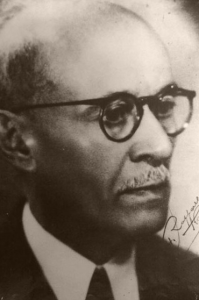
Born in Sondrio in 1872, Carini attended local highschool G. Piazzi and then enrolled to the Medicine Faculty of Pavia University. He graduated with honours and recommendation for publication, with a dissertation written at the General Pathology Institute. After an experience with Romeo Fusari at the Human Anatomy Institute in Turin, he started working on microbiology in Lancy, near Geneva, and at the Serotherapeutic and Vaccine Therapy Institute in Berna, where in 1905 he became a lecturer in Bacteriology.
In 1906 he was offered the direction of the Pasteur Institute in Sao Paolo, Brasil; he therefore had the chance to observe subjects affected with pulmonary micro cysts inside of which he identified a microorganism, in his honour named Pneumocystis carinii. In the 1980s this infective agent would again be making news as frequently responsible for pulmonary infections in patients afflicted by acquired immunodeficiency syndrome.
Carini was Microbiology professor at the Medicine Faculty of Sao Paolo and an extremely prolific researcher in all medical microbiology fields. The list of microorganisms new or little known which he identified exceeds 150, including Trypanosoma, Giardia, Pneumocystis jirovecii, Plasmodium, Toxoplasma gondii, Leptospira etc.
In 1947, having reached age limit, he resigned from the direction of the Paulista Biology Institute and returned to Italy. He died in Milan in 1950.
